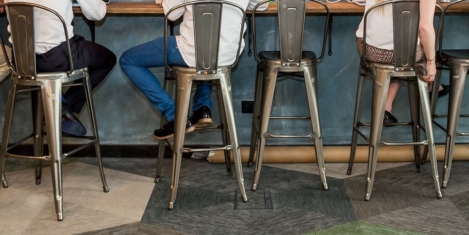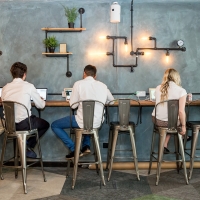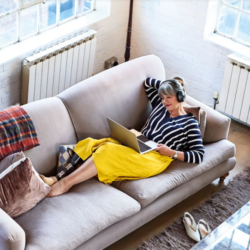To provide the best experiences, we use technologies like cookies to store and/or access device information. Consenting to these technologies will allow us to process data such as browsing behaviour or unique IDs on this site. Not consenting or withdrawing consent, may adversely affect certain features and functions.
The technical storage or access is strictly necessary for the legitimate purpose of enabling the use of a specific service explicitly requested by the subscriber or user, or for the sole purpose of carrying out the transmission of a communication over an electronic communications network.
The technical storage or access is necessary for the legitimate purpose of storing preferences that are not requested by the subscriber or user.
The technical storage or access that is used exclusively for statistical purposes.
The technical storage or access that is used exclusively for anonymous statistical purposes. Without a subpoena, voluntary compliance on the part of your Internet Service Provider, or additional records from a third party, information stored or retrieved for this purpose alone cannot usually be used to identify you.
The technical storage or access is required to create user profiles to send advertising, or to track the user on a website or across several websites for similar marketing purposes.
 Workers (82 percent) would rather have permanent jobs than “be their own boss” in a freelance or contract role, even as the self-employed and gig economy has grown rapidly in recent years, claims new research from the ADP Research Institute. Many workers believe that permanent work is preferable for a host of reasons including regular hours, better pay, timely payments, and the ability to get credit. More →
Workers (82 percent) would rather have permanent jobs than “be their own boss” in a freelance or contract role, even as the self-employed and gig economy has grown rapidly in recent years, claims new research from the ADP Research Institute. Many workers believe that permanent work is preferable for a host of reasons including regular hours, better pay, timely payments, and the ability to get credit. More →







 A new survey published by
A new survey published by 
 Under-35s are in the midst of a professional confidence crisis, with work seen as a place where they feel isolated and afraid to speak out, claims research carried out by culture change business
Under-35s are in the midst of a professional confidence crisis, with work seen as a place where they feel isolated and afraid to speak out, claims research carried out by culture change business 


 Fairness around office rota decisions and implementation is a top employee concern, claims new research by
Fairness around office rota decisions and implementation is a top employee concern, claims new research by 




 More than half of UK workers – 53 percent – plan to make a change to their career in the next 12 months as a direct result of the Coronavirus pandemic according to a new study from
More than half of UK workers – 53 percent – plan to make a change to their career in the next 12 months as a direct result of the Coronavirus pandemic according to a new study from 
 As the UK is in the midst of the traditional ‘back to school’ period, many workplaces are debating over when to return to the office, and how. The sudden move to remote working during lockdown has proven that a new hybrid way of working is in fact possible for numerous organisations, but this has come at the expense of face to face communication and in person collaboration.
As the UK is in the midst of the traditional ‘back to school’ period, many workplaces are debating over when to return to the office, and how. The sudden move to remote working during lockdown has proven that a new hybrid way of working is in fact possible for numerous organisations, but this has come at the expense of face to face communication and in person collaboration. 
 For middle-market and small businesses, the COVID-19 pandemic is highlighting the vital importance of investing in new technology, facilitating remote work, and maintaining the tech-savvy workforce needed to make it all happen, according to a survey conducted by The Harris Poll for
For middle-market and small businesses, the COVID-19 pandemic is highlighting the vital importance of investing in new technology, facilitating remote work, and maintaining the tech-savvy workforce needed to make it all happen, according to a survey conducted by The Harris Poll for 









October 2, 2020
What (nearly) everybody gets wrong about work and the coronavirus
by Mark Eltringham • Comment, Flexible working, Workplace design